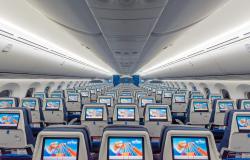For the planned shrinkage of Schiphol, the economically least important flights that together do not yield anything for the Netherlands could be canceled first, the researchers said in their report.
“These are flights that are mainly full of transfers. The government has a distorted view of the importance of the current aviation network for the prosperity of the Netherlands. As a result, policy is being drawn up that is not aimed at aviation with the greatest possible value for the Dutch economy, but at maintaining the largest possible flight volume and the growth model of aviation.”
Peeters and Pels investigated how the value of the aviation destination network can be measured. “A flight is more profitable if it contains many passengers who are staying in the Netherlands as tourists or business travelers. A flight yields little or nothing for us if it only contains connecting passengers who do not need to be in the Netherlands at all. Because every flight also costs society something through noise pollution, emissions of nitrogen and other pollutants, damage to health and climate change. It turns out that, on balance, 30 percent of flights do not directly contribute to the economy if the costs of climate damage are included,” is one of the conclusions.
Wrong leg
The government annually measures how valuable the aviation network is for the Netherlands. In other words: which flights to which destinations add value to the economy. The researchers note that the method developed by the Ministry of Infrastructure & Water Management does not measure correctly. It does not take into account the type of traveler nor the environmental impact of the flight.
According to the researchers, a long-distance flight with a high percentage of transfers has a small return, but causes costs for society through climate damage and noise pollution. According to the government’s method, more flying yields more for the economy, but the method does not take into account the Dutch need for flights or the extent of environmental effects. In their view, the government is confirming the growth model of aviation and not its broad social value.
“Providing reliable information is crucial for good decision-making. The current I&W method does not do that and misleads the public, politicians and policymakers,” says Koenraad Backers of Natuur & Milieu.
Efficient and valuable aviation
According to the researchers, an indicator that gives policymakers and the sector insight into efficient growth or shrinkage of aviation is possible. “This combines the actual expenditure of each type of traveler with the environmental costs of allowing that traveler to fly to and from Schiphol. And not only looks at flying, but takes into account all possible connections via road, water and rail,” says Peeters.
Transparent government
Natuur & Milieu finds it inexplicable that the government uses a measuring method that, by definition, values aviation growth positively. Backers: “Aviation must make a proportionate contribution to preventing further climate change and improving nature and the living environment. This research shows that a much smaller, but tailored to Dutch needs, aviation can make a positive contribution to our economy. Shrinkage of Schiphol is therefore positive news, not only for the environment but also for our economy. If the government provides a method that provides insight into what a flight brings us and which destinations we really need, it will remain transparent which flights are valuable to the Netherlands. The researchers have shown that such a measuring method, based on the impact of a flight, is possible.”






